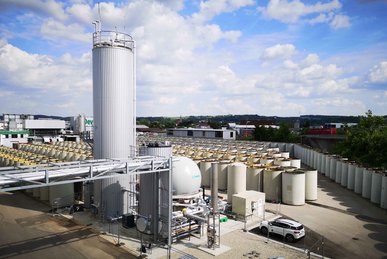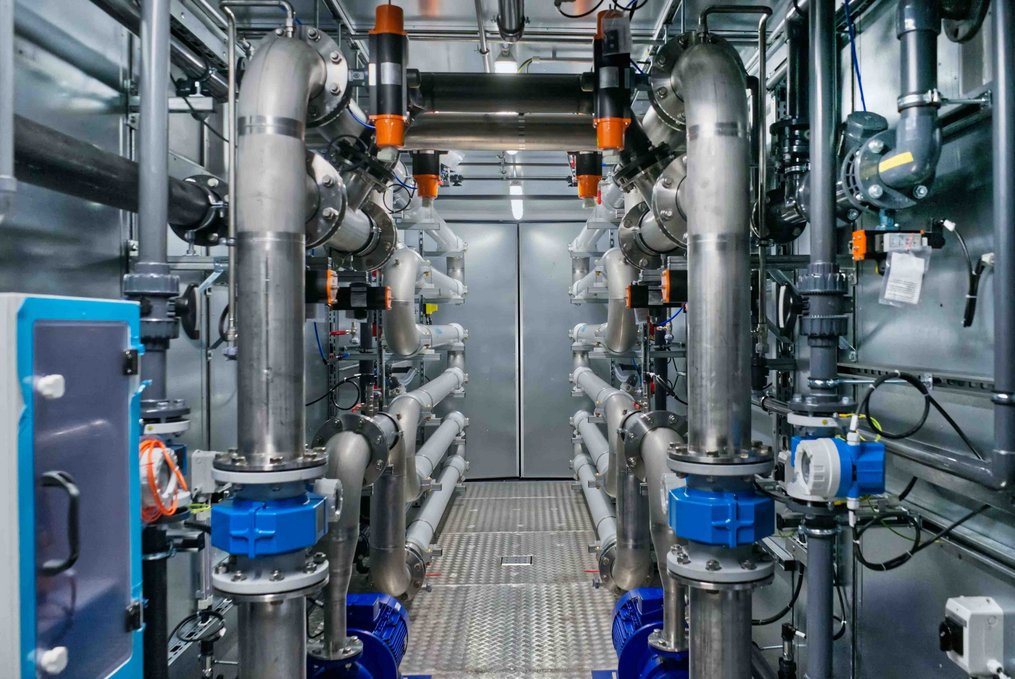Products
Greentech Power from the Black Forest
Reliable solutions for the sustainable treatment of wastewater and waste.
The construction of energy and resource efficient systems is WEHRLE’s core business. With our offering, we help our customers to carry out resource-efficient and circular business. The range of services extends from the purification of production wastewater, through the recovery of valuable materials and the production of biogas, to the thermal utilization of production residues or non-combustible elements. Already in the project planning and project design stages, the focus is on achieving the highest possible system efficiency while at the same time creating designs that are sustainable with regard to environmental goals.
Solutions for the sustainable treatment of wastewater and waste

BIOMEMBRAT®
Membrane bioreactor for the biological treatment of landfill and industrial wastewater

DIRECT-RO
Compact leachate purification system in a container system for quick commissioning

FLUIDFIRE
Decentralized sewage sludge incineration plants with integrated phosphorus recovery

BIODIGAT®
Anaerobic wastewater treatment to produce biogas from wastewater with a high organic load

GRATEFIRE
Decentralized thermal utilization plants as waste-to-energy energy supply systems

We provide services for the wastewater and waste industry
We offer customers in the wastewater and waste industry individually tailored service packages that include professional system operation, rental systems, feasibility analyses and project planning through to upgrades of existing systems. Our in-house production of large parts helps us to quickly deliver individual spare parts to our customers in the waste industry and thus guarantee short downtimes.

Pre- and after-sales services from analyses, consulting, upgrades and rental systems to system operation and employee training

Boiler/grate revisions and renovations of thermal recycling plants, from damage analysis to repairs and documentation

In-house production of large components, spare parts production, heavy engineering, surface processing and construction planning
Learn more about our solutions and references
Our many years of experience and our commitment to sustainable, tailor-made system solutions and services make us the ideal partner for companies in the wastewater and waste industry. We support other companies on their way to a more sustainable use of resources, reliable reduction of the water footprint and reliable recycling of critical waste.
You might also be interested in
Our expertise is based on globally established references. Find out more about our solutions.
Solutions and references
For over 160 years, WEHRLE has stood for reliable and sustainable service provision for its regional and international customers.
Sustainability
The most important success factor for our company is the reliable and quality-conscious work of our employees.






